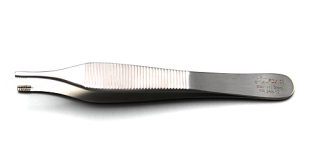Learn what is Lockjaw (Tetanus), Symptoms, Causes and its treatment.
We are exposed to many viruses, bacteria and other organisms that can harm us but our immune system is one that fights continuously to save us from different diseases. The danger to our health could range from simple colds to serious medical conditions.
Lockjaw also known as Tetanus and Trismus, prevents the mouth from opening properly, fully, or to otherwise cause to function improperly. If you feel pain or tension in your mouth that prevents you from fully opening your jaw it is likely that you have lockjaw.
Though Lockjaw disorder itself is relatively harmless, but it can be an indicator of some issues that may be very important. Tetanus, for example, is a serious bacterial infection that affects the nervous system and causes muscles throughout the body to tighten.
Tetanus is also called lockjaw because the infection primarily causes muscle contractions in the jaw and neck and shortly after it can spread to other parts of the body. Tetanus infection can be dangerous and even life-threatening without treatment. Tetanus is a medical emergency and it is highly recommended to have an immediate treatment in a hospital. Through the use of vaccines, that are easily available, it could be prevented.

Continue to read if you want to know about this medical conditions, that is known as lock jaw. You can find all relevant information below.
Lockjaw (Tetanus): Symptoms, Causes, Treatment
As discussed a little about tetanus above, it can be said that tetanus is basically a condition or cause that can lead to a medical condition known as lock jaw. So tetanus can be there as a reason for lock jaw. Tetanus affects directly and primarily the nerves that control your muscles, which can lead to difficulty swallowing. Besides swallowing, stiffness in various muscles, especially those in your jaw, abdomen, chest, back, and neck, may also occur.Tetanus has a few stages of infection and lockjaw usually occurs later, indicative of a long period of infection. In addition to this, many people who develop lockjaw actually have oral or jaw related illnesses and problems that result in the disorder. Inflammation of the soft tissue in the mouth is one of the leading causes of lockjaw. Oral diseases, fevers, or other mouth related illness can also cause lockjaw to develop.
Lockjaw Causes
There could be several causes of Lockjaw disorder but having tetanus infection is the most common and potentially lethal. Tetanus is caused by bacteria called Clostridium tetani. Spores of the bacteria can be found in dust, dirt, and animal droppings. Spores are small reproductive bodies produced by certain organisms. They are often very resistant to harsh environmental conditions, like high heat.
The time between exposure to the bacteria and the illness, known as the incubation period is like 3 to 21 days. But symptoms typically appear within 14 days of initial infection.
Tetanus has a few stages of infection and lockjaw to occurs later. Many people who develop lockjaw actually have oral or mandible (jaw) related illnesses and problems that result in the disorder.
Inflammation of the soft tissue in the mouth is one of the leading causes of lockjaw. Many things can cause the soft tissue in the mouth to be inflamed such as over mastication (too much chewing or use of the mouth) or disorders of the joints in the jaw such as Temporomandibular joint disorder (TMJ or TMJD).
Oral diseases, fevers, or other illness that have symptoms in the mouth can also cause lockjaw to develop. One of the reasons for this is because the muscles in the jaw become worn and exhausted from both tissue swelling and weakness; as a result, your muscles can’t open your mouth all the way resulting in this disorder.
Lockjaw (Tetanus) Symptoms
Usually, a physical examination is performed in order to check for symptoms of Lockjaw caused by tetanus infection, such as muscle stiffness and painful spasms. Unlike other diseases, laboratory tests are not required.
As tetanus is the leading cause of lock jaw so the lockjaw symptoms are actually tetanus symptoms. These includes:
- headache and muscular stiffness in the jaw
- Stiffness in jaw is usually followed by stiffness of the neck,
- difficulty swallowing,
- hardening of abdominal muscles,
- spasms,
- sweating,
- fast heart rate
- fever
- high blood pressure
Lock jaw Treatment
Lock jaw treatment of largely depends on the severity of the symptoms. Generally, it is treated with a variety of therapies and medications. The most common method which is widely used is as follow:
- First step is to clean the wound to get rid of the source of the bacteria. In some cases, a surgical procedure called debridement may also be used to remove dead or infected tissue.
- Once wound is cleaned then antibiotics like penicillin is used in order to kill the bacteria in your system.
- To neutralize the toxins that the bacteria have created in your body, tetanus immune globulin (TIG) is used.
- As this medical condition tighten your muscles so muscle relaxers are also helpful to control muscle spasms.
- Tetanus vaccine is essential along with the treatment.
- In case of having difficulty swallowing and breathing, a breathing tube or ventilator may help the patient to cope with problem.
CDC data shows that 11% of reported cases of tetanus have been fatal. Death is more common in young children and the elderly. This was higher in people over the age of 60 years (18%) and people who were unvaccinated (22%).
Prevent Tetanus Infection
Vaccination is the best way to protect against tetanus. Most people receive their first dose as children in the form of a combined vaccine called DTaP (diphtheria-tetanus-acellular pertussis). Every child receives this vaccination, in the USA. It is a three-in-one vaccine that protects against diphtheria, pertussis, and tetanus.
But it is not considered as lifelong protection. Children need to get a booster shot called Tdap at 11 or 12 years of age. This vaccine also protects against whooping cough to some level.
Normal adults need a booster vaccine called the Td vaccine every 10 years after that. If you get wound and think your injury has made contact with soil, proper treatment and cleaning can also help prevent the Tetanus infection.
 Health & Care Information
Health & Care Information 

